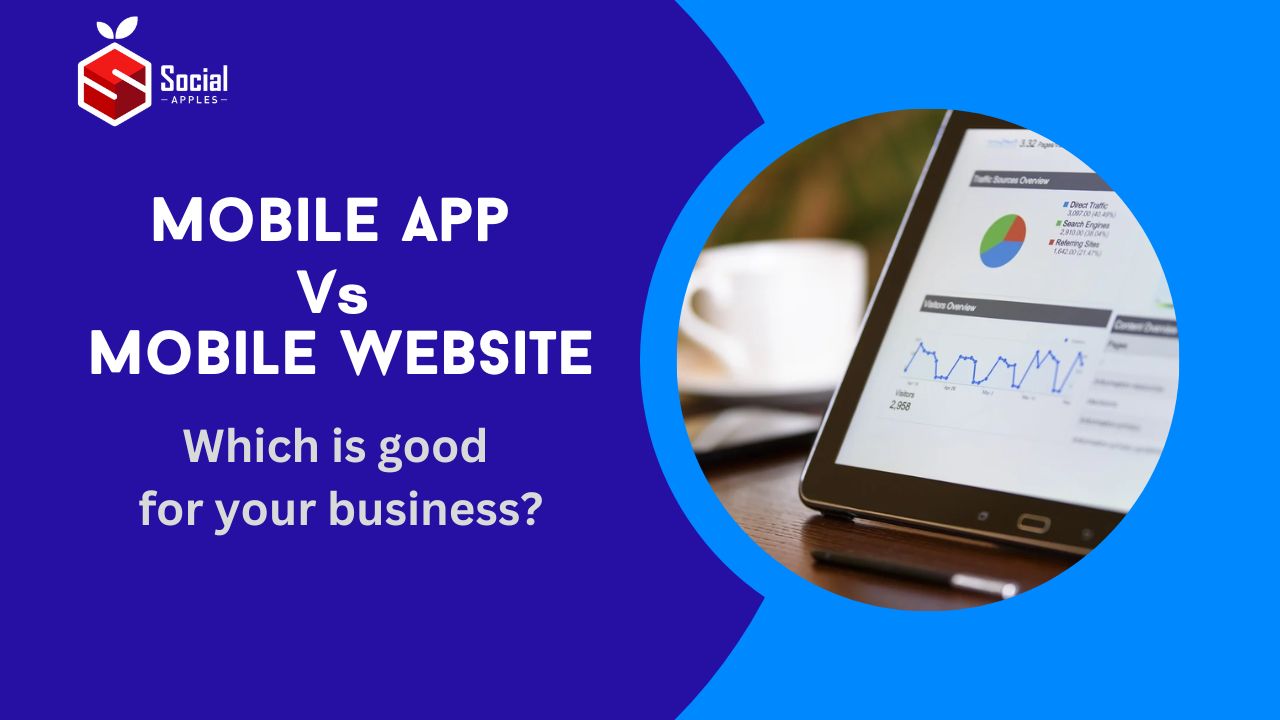As a business owner, I always prefer to build a mobile app or website to reach a wider audience and create branding. Well-optimized websites and fast mobile apps give users a smooth experience accessing your product. Have you wondered – Mobile App vs Mobile Website – What’s Best for Your Business? We’ll find out that in this article.
The question can’t be answered directly; it depends on multiple factors like your plans, budget, etc. We’ll see every aspect of both and try to conclude what to consider first.
You need a good knowledge of codes to develop an app or a website. But many companies offer website and custom mobile app development services. You can reach them to develop an app or a website according to your needs.

Contents
Quick Comparison Between a Mobile App and a Mobile Website:
Although both look the same at first glance, there is a huge difference in their working capabilities and user interface. It’ll be better to see the key differences before we move on to a detailed analysis.
- A mobile website is based on HTML; users can access it from a browser. On the other hand, you need to install a mobile app on your device to use it.
- A user always needs an internet connection to access a mobile website. But, mobile apps can be online or offline.
- Mobile apps are developed to work on a specific operating system like android, iOS, etc. Mobile websites aren’t bound to this and can be accessed from any device.
Mobile App vs Mobile Website – Detailed Analysis
To understand better about the both of the platforms, we will go through the Pros and Cons of Mobile App and Mobile Website. So, here we go:
Mobile Website:
Mobile websites are an optimized version of desktop sites and a good tool to reach many people. It has some benefits along with some disadvantages. Let’s look at all the pros & cons:
Responsive & Adaptive: Mobile websites simply adapt to any screen size by increasing or decreasing the element size. You don’t need to develop a separate website for different devices.
Compatibility: Mobile Websites are compatible with any device independent of the operating system. It reaches much wider audiences as it is accessible with any browser.
Search Engine Optimization: SEO is the best source to increase your customer base organically. If you optimize your website well, it will rank on search engines and will get you more users.
Availability & Updates: Once you publish your website, users can access it instantly with the link. If you update anything on your website, it also gets updated instantly.
Sharing: Users can share your website URL via email, text messages, or social networks. You can share the link on other websites to direct users to yours.
Cost: It takes less money and resources to develop a website than apps. You can get your website live on the web quickly.
Offline Accessibility: Websites can’t be accessed offline as they respond with data directly from the server.
User Experience: Due to technical limitations, websites don’t provide a good user experience, unlike mobile apps.
Limited Capabilities: Websites can’t make use of device hardware; thus, it limits the working capabilities of a website.
Mobile App:
Mobile Apps are very powerful and create brand value for your business. A mobile app also has some benefits and drawbacks. Let’s see all the pros & cons that a Mobile app has.
Capabilities: Mobile Apps are undoubtedly the best platform to provide users with attractive features. It offers some extensive capabilities to offer users the desired features.
Offline Accessibility: Unlike websites, users can access Mobile apps offline. However, you’ll need an internet connection if it gathers data from the server.
User Experience: The main goal of a business should be to provide a great user experience. Mobile apps meet the expectation in this case. The usage of mobile apps is much easier with easily navigable options.
Push Notifications: Mobile Apps send push notifications to users who installed the app on their devices.
In comparison, Mobile websites have certain limitations in sending notifications to iOS devices.
Cost: You need a good amount of money to build an, which might be a concern. Android apps can’t run on iOS devices, and vice-versa, so you need to make different apps for different platforms, which will surely cost you a significant expense.
Maintenance & Updates: You always need someone to fix bugs and update the app to make it better. To do this, you’ll need to invest a significant amount of money regularly.
Long wait for Approvals: You must wait a long time to get your app live in stores. Play Store and App Store take your app through some checks according to their policies.

Mobile App vs Mobile Website – Short Summary
Now, let’s get a short & quick summary to understand things more clearly. Also, check out easy ways to make successful pins for your business
| Criteria | Mobile App | Mobile Website |
| User Experience | It engages with device hardware to provide a great user experience. | It has certain limitations. |
| Availability | It is a device-specific platform. | Widely available on all devices with a browser. |
| Approvals | Stores check a few checks before making the app live. It takes a lot of time. | It gets live on the web once you publish. |
| Offline Accessibility | It can be offline, online, or both. | Users can only access it online. |
| Reach | It is limited to the users of certain operating systems. | Reaches more audiences irrespective of OS. |
| Cost | High development and maintenance costs. | Comparatively, low-cost |
| Update | Users need to download the updates. | It gets updated immediately. |
Conclusion:
There you have it – we have discussed every aspect of a mobile app and website, and now it’s on you to choose the best one for your business. A website will be great if you want to reach a larger audience with less budget. If you are ready to invest significant money, you should build mobile apps. Analyze every point and select what suits your business best.













